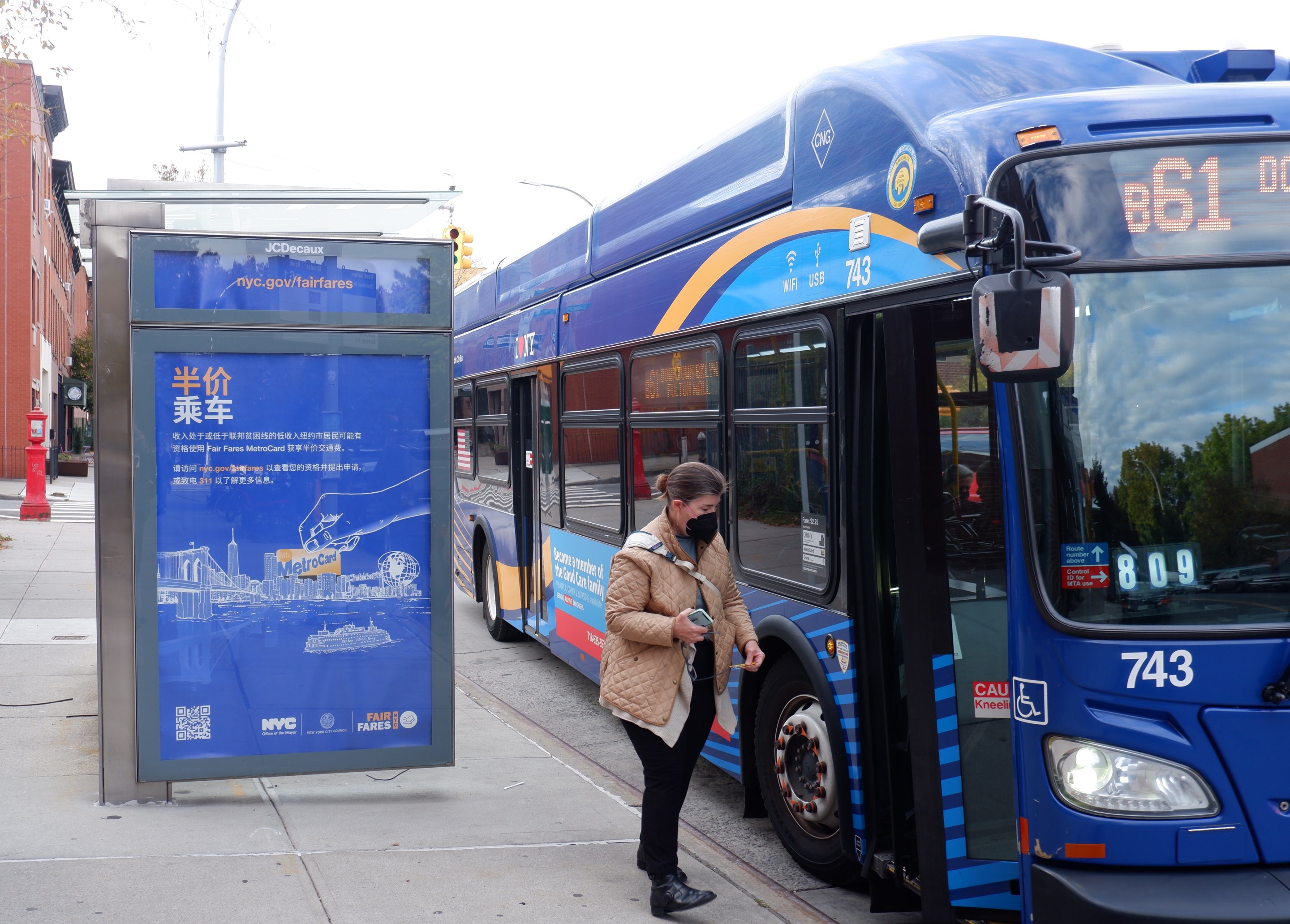Mayor Adams's preliminary budget does not increase funding for Fair Fares, the city's half-price MetroCard program for very low-income transit riders — a program that only last year, Mayor Adams called "transformative."
Adams proposed to spend $75 million on the discount ticket initiative this year as part of his record $102.7 billion preliminary budget, the same amount as the mayor and the City Council agreed to last year, a figure that remains below pre-pandemic levels.
Since 2019, Fair Fares has offered MetroCards at a 50-percent discount for working-age New York City residents earning at or below the federal poverty line, which for this year is just $14,580 a year for a single person — less than half the city minimum wage.
That's one of the strictest income thresholds for similar programs across the country, and advocates have pushed to add funding so the city could double the threshold for eligible riders. But city officials have refused, saying they first wanted to reach more of the people who are currently eligible.
Currently, 275,528 New Yorkers have enrolled in the program — slightly more than one-third of the 753,400 New Yorkers who meet the income threshold, according to the Community Service Society, which tracks the program.
The strict requirements leaves out many New Yorkers earning well below the city's median income. Subway ridership has returned to above pre-pandemic levels in several blue collar neighborhoods in the Bronx, Brooklyn, Queens, and uptown Manhattan, showing the need for more affordable transit.
"Fair Fares hasn’t met its potential because the eligibility is too strict," said Danny Pearlstein of Riders Alliance.
Pearlstein called on the city to set the income limit at 200 percent of the federal poverty line and fund the program to the tune of $300 million per year. The transit booster said that would create a "virtuous circle" of getting more people on board with the program and on mass transit.
"The city’s role is to inject a measure of equity into it," Pearlstein said.
The original Fair Fares budget was $106 million a year, but former Mayor Bill de Blasio slashed it to half that during the pandemic.
Mayor Adams and the Council for the first time baselined Fair Fares funding at $75 million in 2022 and the Department of Social Services, which runs the program, boosted its advertising on social media, radio stations, community and ethnic newspapers, as well as on subways and at bus shelters.
DSS is earmarking $2 million to buy Fair Fares ads this year and will also spread the word via community based organizations, according to a spokesperson for the mayor's office, who said last year's $75 million covered all New Yorkers who sought the benefit and allowed the city to get more people signed up than before.
"It's a top priority of this administration to cut red tape and connect more New Yorkers with the wide range of benefits the city offers, including Fair Fares," said Jonah Allon in a statement. "We want as many New Yorkers as possible to take advantage of Fair Fares, and are open to expanding the program through the budget process as we see demand increase."
Meanwhile the Metropolitan Transportation Authority plans to increase fares by 5.5 percent by the middle of this year to stave off cuts to service and layoffs.
The city and the MTA also want to move Fair Fares to the transit agency's OMNY tap-and-go payment system this year, Streetsblog previously revealed.
The Council will negotiate and hold hearings on the budget over the next several months before reaching an agreement by the end of the fiscal year on June 30.
Council Speaker Adrienne Adams and Transportation Committee Chair Selvena Brooks-Powers did not respond to requests for comment on deadline. (We will update this story if we hear back.)
Mayor Adams noted during his budget speech on Thursday that the city would have to be mindful of spending amid a looming recession, depleting federal pandemic aid, and costs like the increase in asylum seekers arriving from the southern border.
"In order to keep moving forward while preserving the programs and services we value, we must be careful and make the best use of our resources. Since Day One, fiscal discipline has been the hallmark of this administration," Adams said. "As the economy slows, so will our revenue growth. This creates the perfect storm. We will still need to support the cost services that New Yorkers depend upon every day, but with fewer resources."
Fiscal restraint runs counter to Adams's support for Fair Fares, which he praised when he made it a permanent part of the budget last year. "Fair Fares has proven to be a transformative program for so many New Yorkers struggling to get by," he said at the time.
This story has been updated to include new comment and information from the mayor's office received after initial publication.






